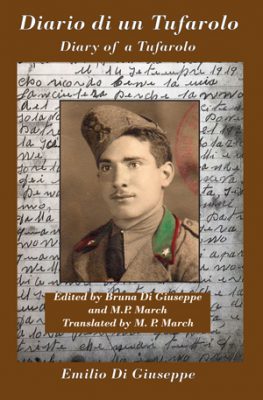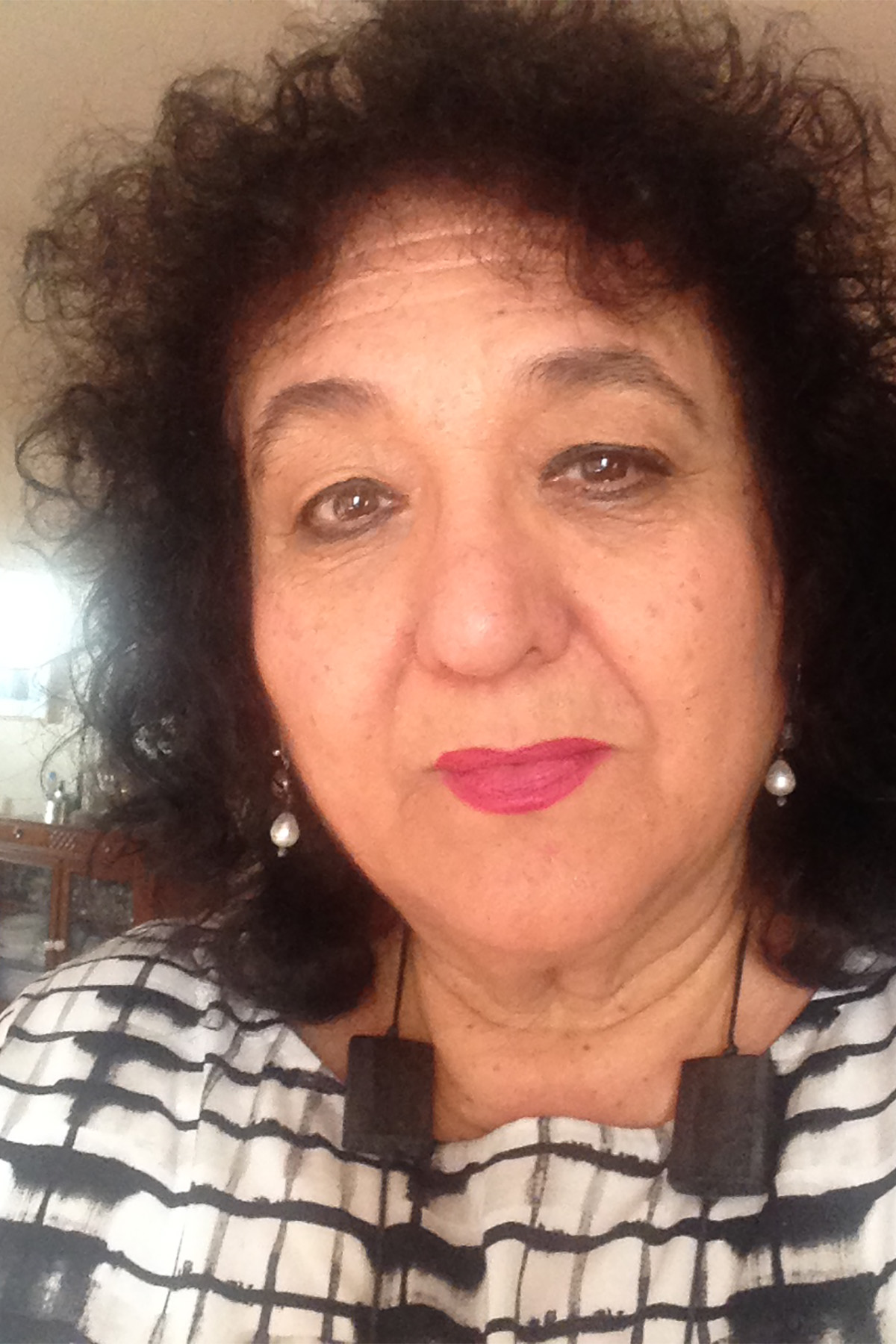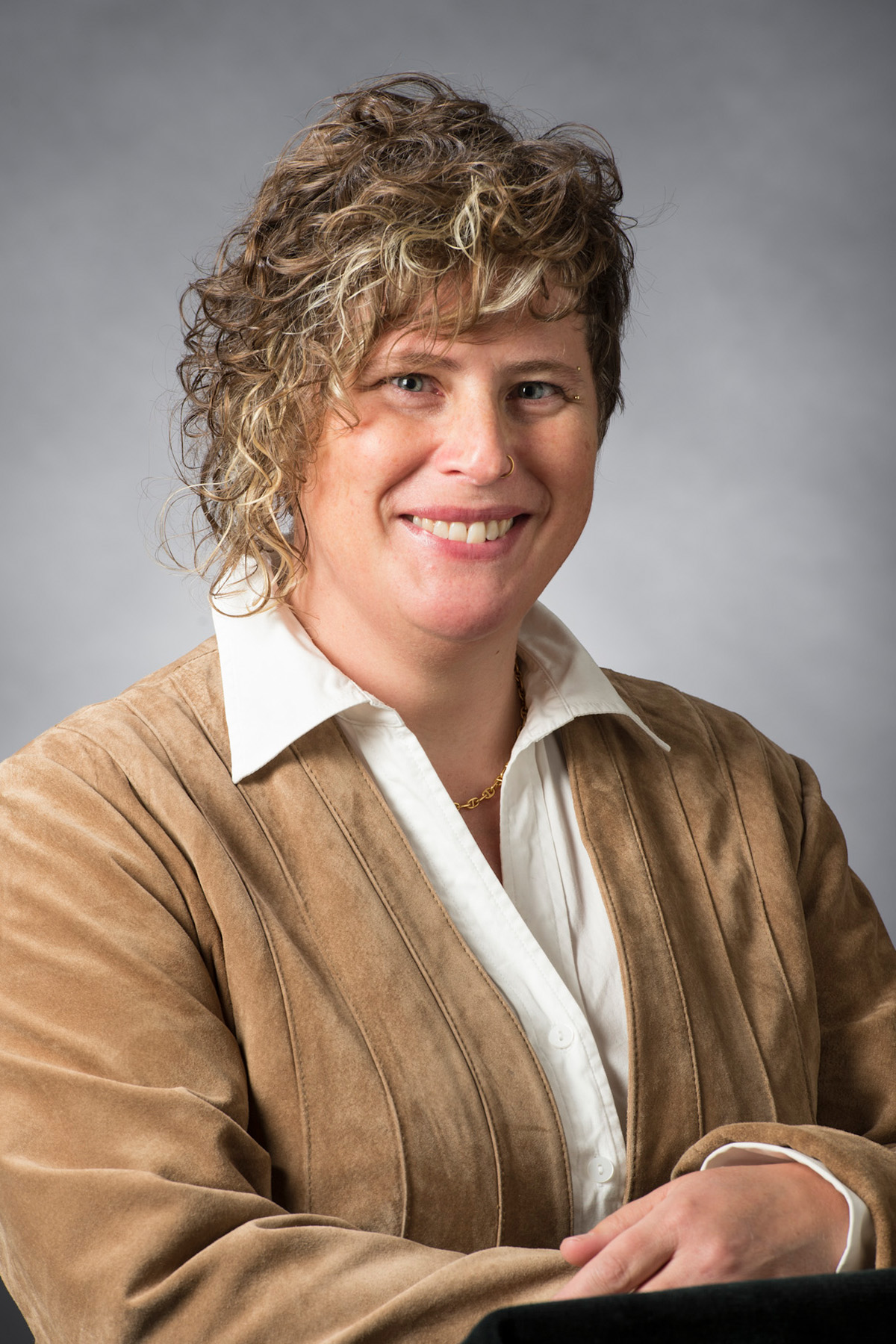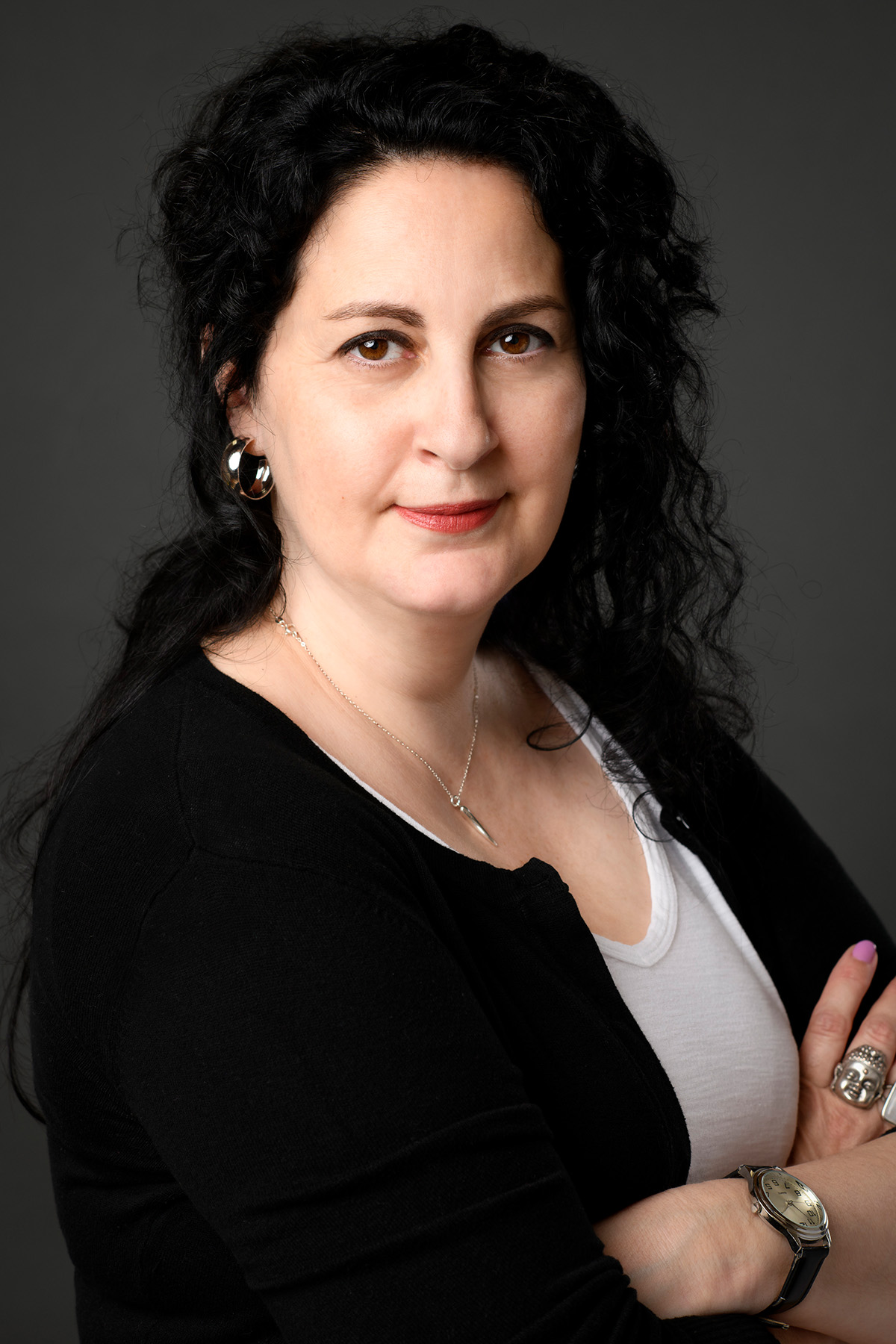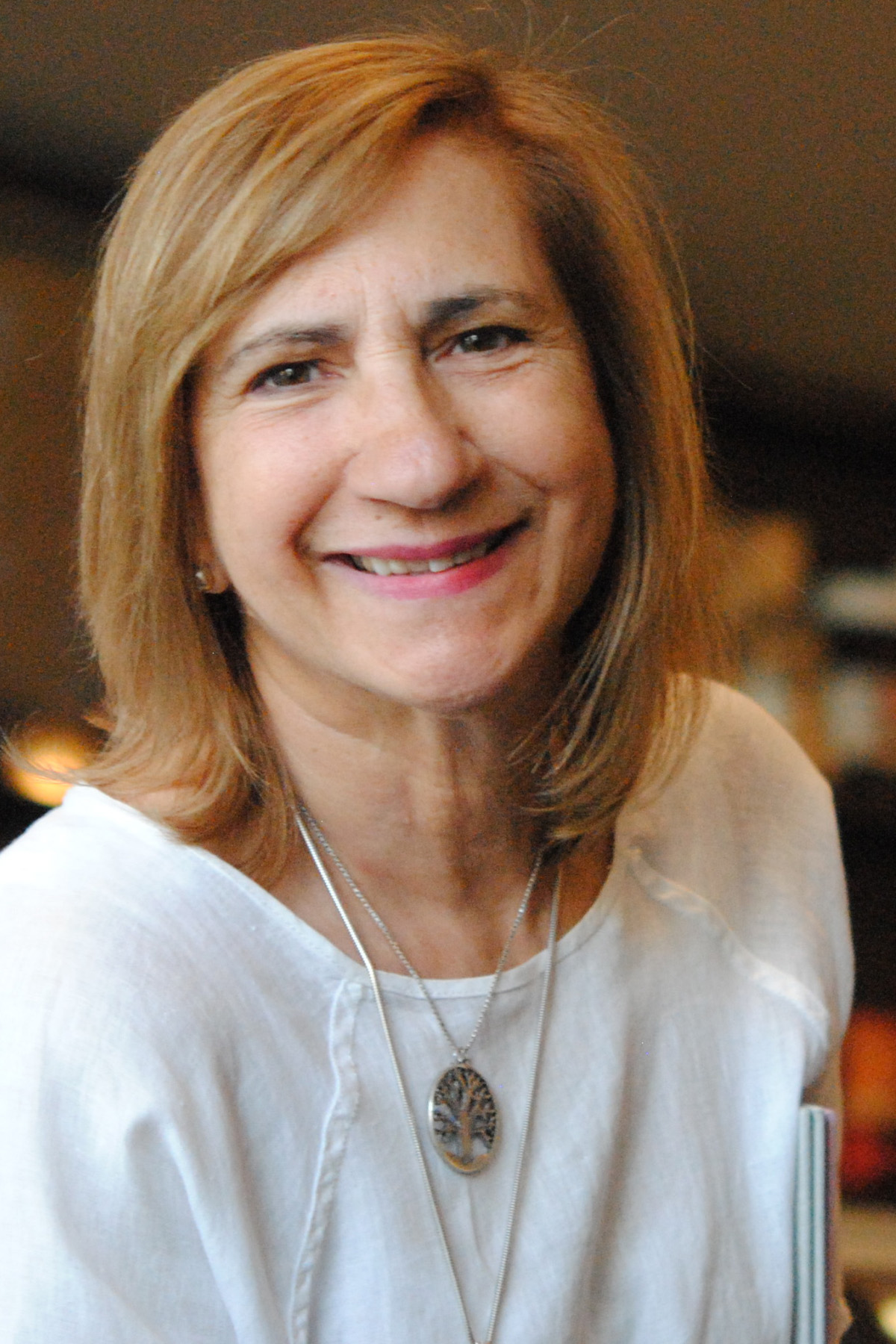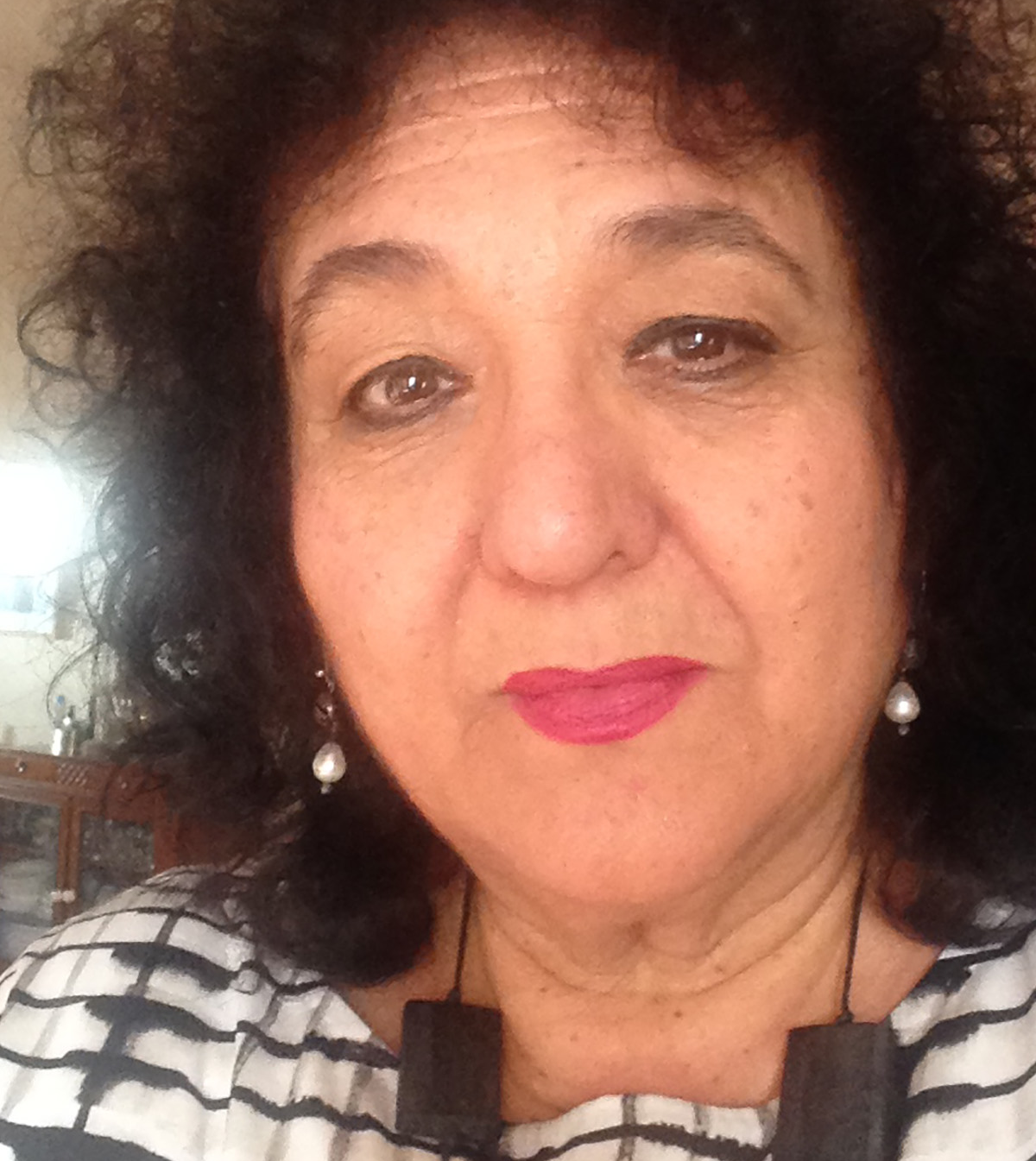
gianna patriarca
Born in Ceprano in the Province of Frosinone, in the region of Lazio, Italy, Gianna Patriarca came to Canada as a child in 1960.
Gianna is an award-winning author of eight books of poetry and one children’s book. Her work has been adapted for stage at the Berkley Street Theater and for CBC radio drama. Her writing is widely anthologized and featured in various documentaries including Enigmatico, Pier 21, The Italian/Canadians and Three Women: Adopting Lines, Adapting Lives.
Gianna’s books appear on the course list of numerous universities across Canada, the US and Italy. Her first book Italian Women and Other Tragedies was runner-up to the Milton Acorn People’s Poetry Award. It was translated into Italian in 2009 and presented at the University of Bologna and Naples Orientale.
My Etruscan Face was short listed for the Bressani Literary Prize in 2010. Her latest publication is a collection of stories inspired by the lives of Italian/Canadian women in Toronto. All My Fallen Angelas was launched on May 5th, 2016 and published by Inanna Publications.
Gianna continues to read and perform her work extensively throughout Canada and the US while somehow finding the time to work on her novel, The Sicilian’s Bride.
in her words








all my fallen angelas
All My Fallen Angelas is a collection of stories inspired by the lives of Italian-Canadian women living in Toronto from the 1960s to the present. The stories document their strength and resilience, their power and vulnerability as the women move in community that allowed their presence in shops, factories, and churches, but offered them little else for entertainment and self-exploration outside of their families.
The stories cover a wide range of women’s experiences from loneliness; disappointment; mothering; marriages, arranged and not arranged, that were loving, simply stable, or violent. As a whole, the book provides the reader with a sense of Toronto’s Italian immigrant community in its urban landscape, housing, social life, work and education options. The stories are the work of a raconteur who has been listening carefully to a wide range of women who shared their feelings in the kitchens and basements of their lives when the men were not around, when they were asleep or otherwise occupied. Each story ends on an ambiguous or poignant note that invokes the reader’s imagination.
These stories are not simply accounts of women’s lives. They are literature: often humourous, sometimes tragic, and eternally human.
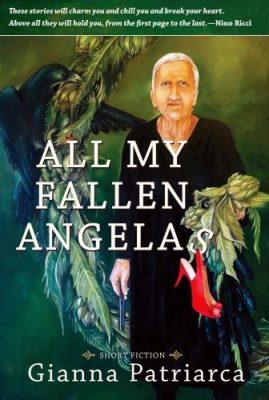
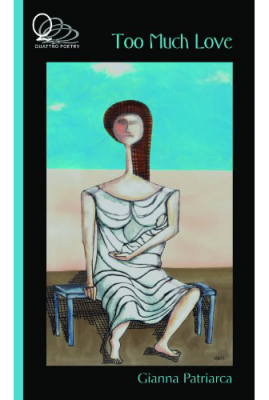
too much love
Too Much Love is a powerful work that explores the author’s personal, political and poetic life. This collection of poetry affirms that Love, flickering between darkness and light, is ultimately the reason for existence itself. Patriarca speaks for those who cannot speak for themselves.
my etruscan face
My Etruscan Face is Gianna Patriarca’s sixth book of poetry. Patriarca is a poet whose voice has not strayed from her first book, the awardwinning Italian Women and Other Tragedies: still direct, honest and lyrical. In this collection she takes us on an extraordinary quest for self and home as she encounters a myriad of characters with uniquely mysterious faces.
Gianna takes the contradictions of human existence, the ordinary acts of living, and spins them into a startling prayer of redemption. She is pure feeling, and her poems are fully mortal, completely compassionate. This collection is a passionate woman’s voracious embrace of the pleasures and the fears of life. She aims for the heart.
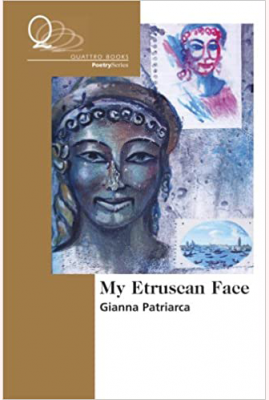
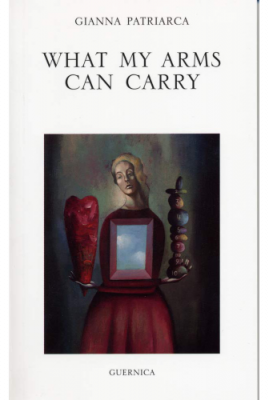
what my arms can carry
Themes of immigration and memory characterize this book of populist poetry. Gutsy and direct, the poet’s voice is also tender and humorous as her poems create small portraits of people in the midst of daily life.
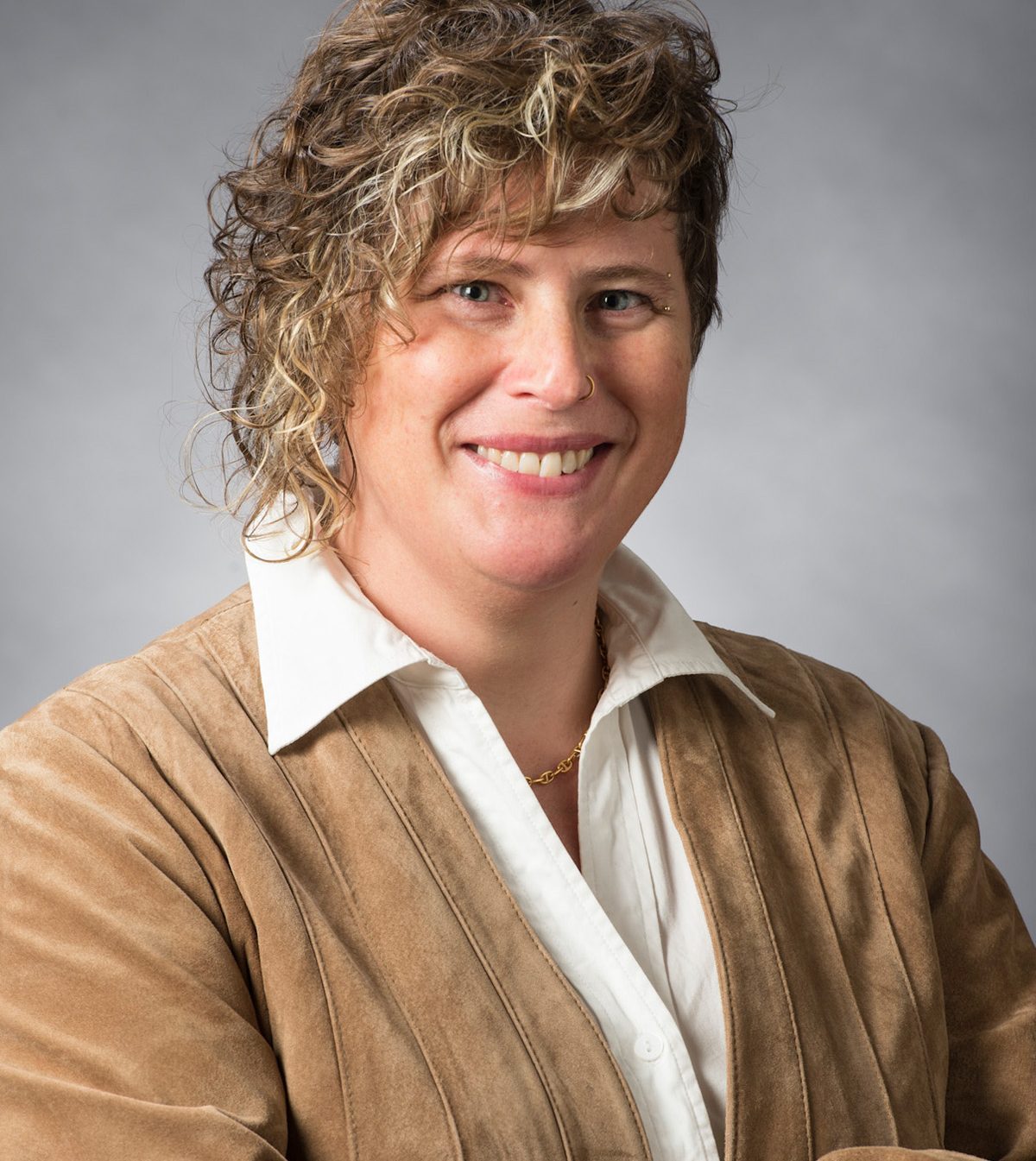
Monica Meneghetti
Monica Meneghetti is a white European settler and child of Italian immigrants, born in the region of Treaty 7 (Calgary, Canada.)
Her first book, What the Mouth Wants: A Memoir of Food, Love and Belonging (Dagger Editions) was a Lambda Literary Award finalist and Bi Book Award winner. The book speaks to an array of open-minded readers, from foodies to relationship anarchists. Edmonton Journal’s Liane Faulder proclaimed it “deeply erotic and decidedly queer”. You’ll find it on American Library Association’s Over the Rainbow’s 2018 Recommended Book List; Autostraddle’s 8 Soft Femme Memoirs; CBC Books’ Must-reads of 2017, and 14 Books to Read for Pride.
Queer Songbook Orchestra included her Bowie memoir in their Fall 2018 cross-Canada tour. Her essay about being a queer child of immigrants is found in The Globe and Mail. Her work has been anthologized in Absent Mothers (Demeter Press), Sustenance: Writers from BC and Beyond on the Subject of Food (Anvil Press), and Love Me True: Writers Reflect on the Ins, Outs, Ups and Downs of Marriage (Caitlin Press). Her literary translation from Italian, The Call of the Ice: Climbing 8000-meter Peaks in Winter (Mountaineers Books) was a Banff Mountain Book Award finalist. Her poetry, fiction and nonfiction appear in print, online, in musical scores, and on stage.
Nominated for Bi Writer of the Year, Monica defines bisexual as loving her own and other genders. Since bi and gender-diverse identities both challenge binary thinking, she has observed a natural allyship between the two communities. As a manuscript development editor, her clients include emerging trans* writers.
in her words









what the mouth wants:
a memoir of food, love and belonging
This mouthwatering, intimate, and sensual memoir traces Monica Meneghetti’s unique life journey through her relationship with food, family and love. As the youngest child of a traditional Italian-Catholic immigrant family, Monica learns the intimacy of the dinner table and the ritual of meals, along with the requirements of conformity both at the table and in life. Monica is thirteen when her mother is diagnosed with breast cancer and undergoes a mastectomy. When her mother dies three years later, Monica considers the existence of her own breasts and her emerging sexuality in the context of grief and the disintegration of her sense of family.
As Monica becomes an adult, she discovers a part of her self that rebels against the rigours of her traditional upbringing. And as the layers of her sexuality are revealed she begins to understand that like herbs infusing a sauce with flavour, her differences add a delicious complexity to her life.
But in coming to terms with her place in the margins of the margins, Monica must also face the challenge of coming out while living in a small town, years before same-sex marriage and amendments to the Charter of Rights and Freedoms created safer spaces for queers. Through risk, courage, and heartbreak, she ultimately redefines and recreates family and identity according to her own alternative vision.
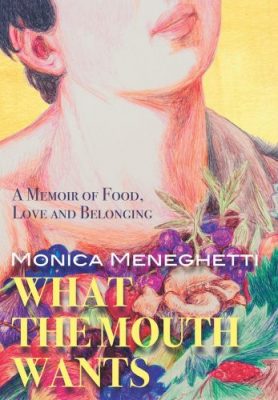
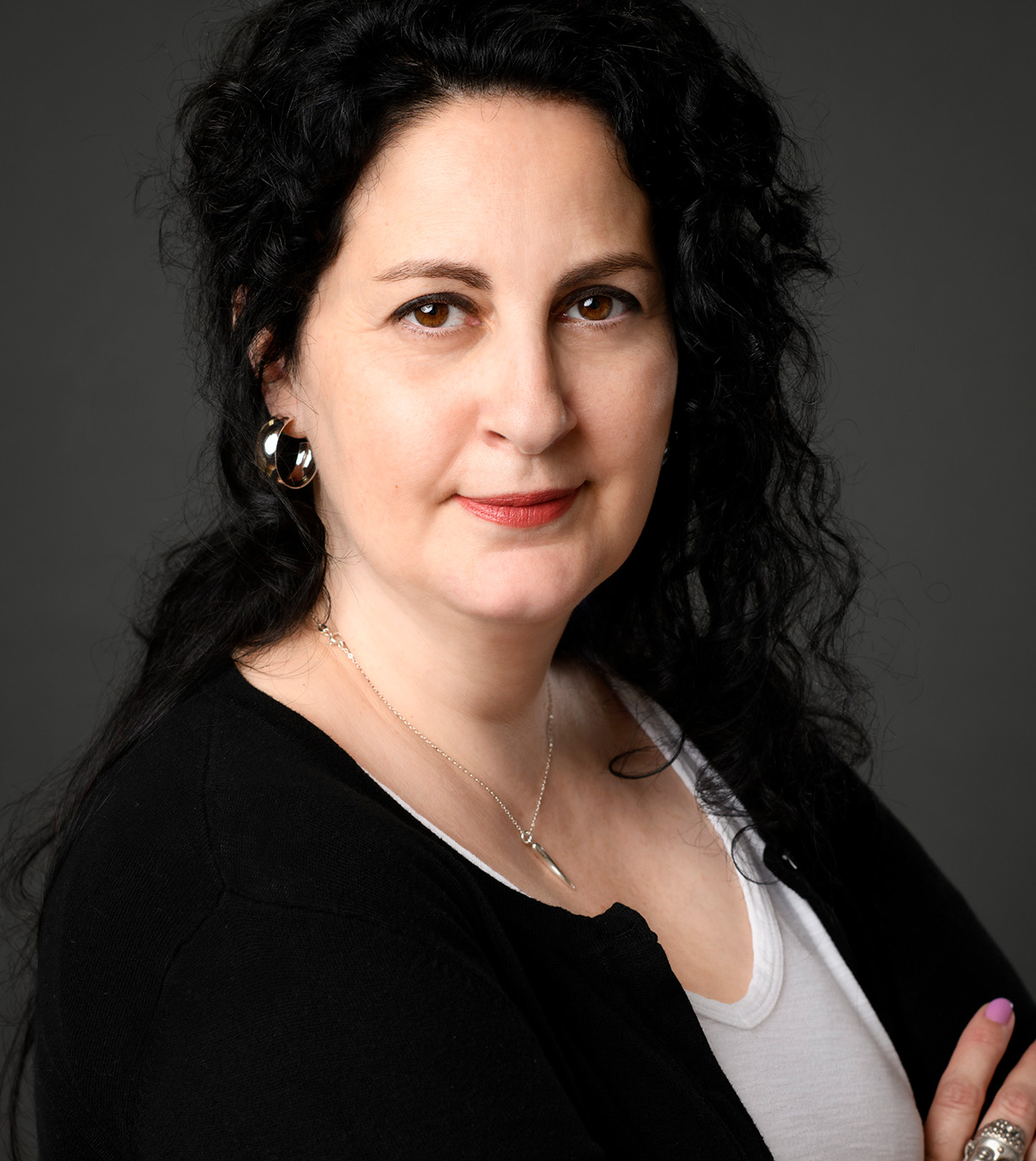
eufemia fantetti
Eufemia Fantetti is a graduate of The Writer’s Studio at SFU and the University of Guelph’s MFA in Creative Writing. Her fiction, nonfiction and plays have been published in the anthologies Love Me True, Exploring Voice and Body & Soul. Her work has also appeared in The New Quarterly, Event and the Globe and Mail. She is a past columnist for Contact Magazine, the newsletter for Teachers of English as a Second Language of Ontario.
She is a winner of the Event Magazine Non-Fiction Contest, and a three-time winner of the annual Accenti Writing Contest. Her work has been nominated for the Creative Nonfiction Collective Readers’ Choice Award and was listed as notable in Best American Essays (2009). Lorna Crozier has called her writing laugh-out-loud funny and David Shields has recognized its “strong, unique voice and perspective.”
Eufemia’s memoir, My Father, Fortune-tellers & Me was released in October 2019 by Mother Tongue Publishing. Her first book, A Recipe for Disaster & Other Unlikely Tales of Love (Mother Tongue, 2013), was runner up for the 2013 Danuta Gleed Literary Award, a winner of the 2014 F.G. Bressani Prize.
She teaches English at Humber College and edits the Humber Literary Review.
in her words






my father, fortune-tellers & me
My Father, Fortune-tellers & Me: A Memoir is a powerful and witty coming-of-age story of fate versus free will. As the daughter of southern Italian immigrants joined in an acrimonious arranged marriage, Eufemia Fantetti weathered the devastating consequences of her mother’s treatment-resistant schizophrenia for years before moving to the West Coast to escape the constant turmoil.
In her search for meaning beyond a host of ancestral superstitions—malocchio, maledictions and stregheria—she writes, cracks jokes, meets counselors, studies the sky for planetary alignment, consults her trusty tarot deck for guidance and visits her dad’s psychic healer for a prescription for prescience. Fantetti’s story is a darkly hilarious, tender chronicle of family, destiny and resilience.
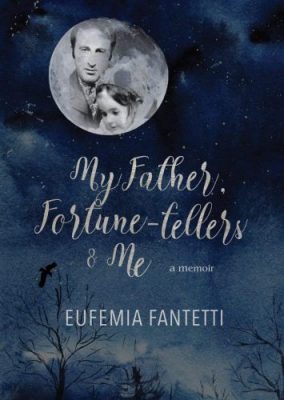
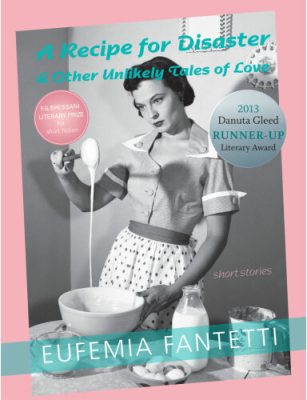
A recipe for disaster & other unlikely tales of love
Funny, tender and poignant, A Recipe for Disaster is populated by quirky characters who blend desire, imperfect love and comfort food into the sweet and salty mix of daily life while they yearn for the sustenance of human connection.
A bemused child witnesses her mother flirt with a police officer responding to a domestic dispute call. A young woman mourns the end of a relationship, recalling the potently toxic recipe that created the disastrous union. A son struggles to accept his father’s emotional frailties and reject his passive approach to loss. A couple finally commits–to breaking up. A recently divorced woman meditates on the source of her ravenous cravings. A woman decides to end the prolonged vow of silence she took with her devout, hyper-critical mother. Six skilful and witty stories that will engage your heart.
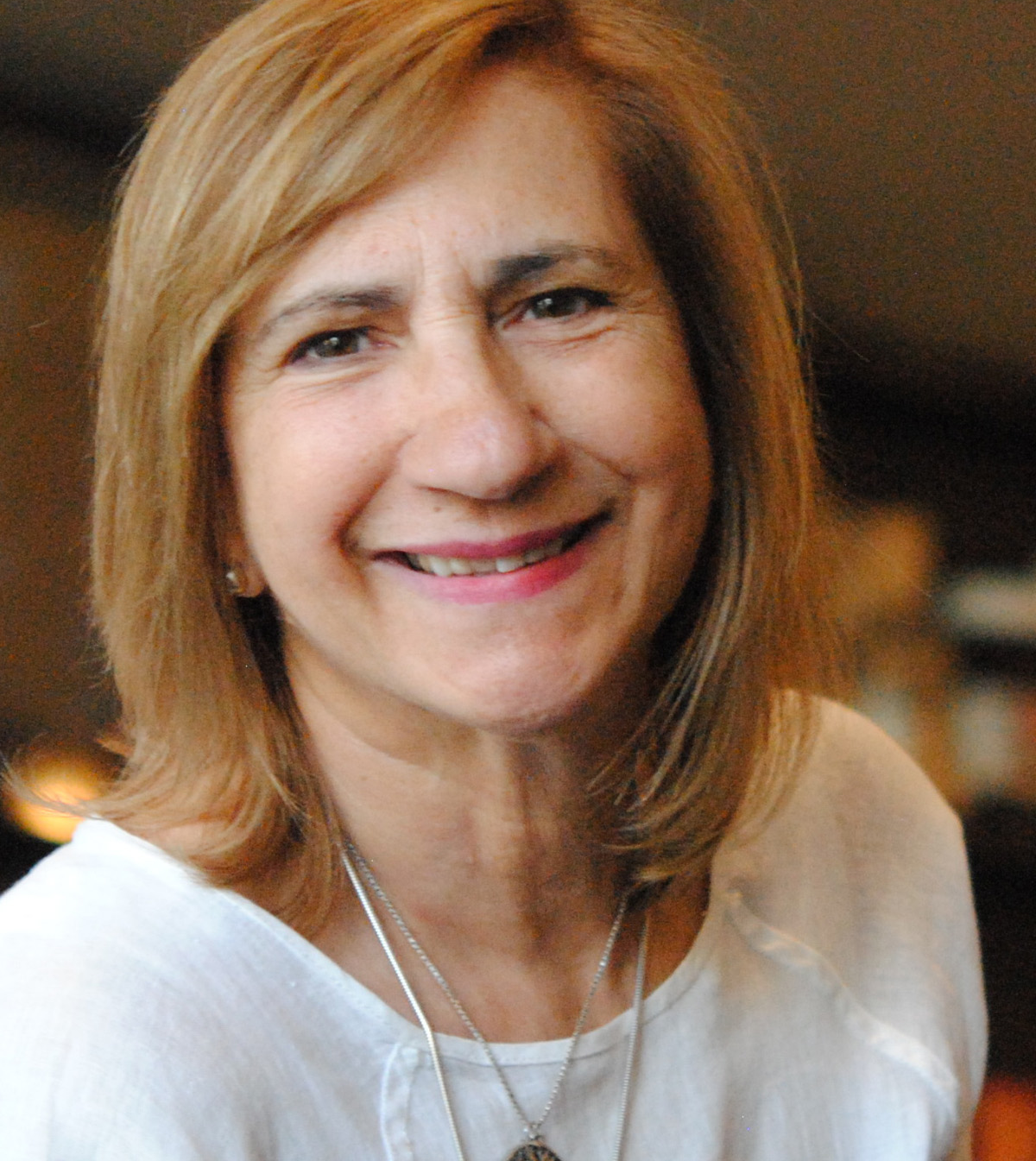
Bruna Di Giuseppe-Bertoni
Bruna G. Di Giuseppe-Bertoni was born in Rome, Italy, and emigrated with her family to Scarborough, Canada in 1964. She has lived, studied, worked, and raised her family in Toronto.
Creative writing and poetry are her passion. She started to write poetry in Italy at a very young age while sketching and painting on ceramic was a regular Sunday chore with the nuns after Mass.
Through her creative writing, Bruna captures the memories of her immigrant experience and how the realities of her new life in Canada has shaped her destiny. It is through her writing that she survived the impact of a different culture, food, language, and climate – it was slowly, through her writing that she finally made sense of her Italian Canadian identity. It has shaped who she is today.
Some of her poetry has been published in Italian and English in various magazines. She has won several awards in Italy and in Canada. She was a member of the Canadian Authors Association (C.A.A.) from 1998 to 2001. She joined the Italian Canadian Writers Association in 2002 and continues to be a member today.
in her words








i call my grandmother nonna
How sad for Franca, who thinks she doesn’t have a grandmother. But Franca soon discovers that many of her kindergarten friends call their grandmothers by different names too!
Franca loves spending time with her nonna. Together they visit friends and family, cook meals, and play in her nonna’s garden. Franca has fun learning about her nonna’s birth country and how to speak her native language. Franca’s nonna was born in a faraway country, shaped like a boot: Italy!
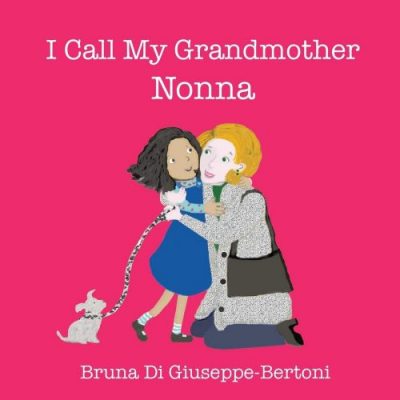
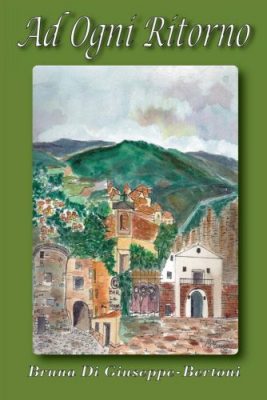
Ad Ogni Ritorno
“My Father passed on December 1st 1992, in Toronto. One month after his funeral, our family had to decide what would be written on his tombstone. We wanted to carve: a sentence, a poem, or something sentimental. The cemetery was near an ancient Anglican church built in 1832. In 1981, my brother had been buried in a small Scarborough cemetery, so my father decided he wanted to be buried beside his son. Both of them are resting in this cemetery, in which only a few Italians are buried.
Finding the right words to carve on his marble tombstone turned out to be fairly easy. My father had a storytelling habit: proverbs, jokes, poems and nursery rhymes. “Dio, Patria e Famiglia” (God, Homeland, and Family) was his favourite saying. I had never paid much attention to that sentence because I hadn’t grasped its meaning yet. Because all his beliefs were so strongly based on this saying, this is the phrase we chose to carve for him.
Only after I had said my last goodbye to him, I started to understand this teaching, especially his ties to Italy. All that my parents taught me, pushed me to review all that had been part of my past. And that is why I write my memories and my experiences at every return (Ad Ogni Ritorno). Reliving the past has the power to awaken in me unutterable emotions. It helps me to live and nourishes my identity with pride.”
diary of a tufarolo
Diary of a Tufarolo is the story of a poor orphan from the town of Tufo in Abruzzo, Italy by the name of Emilo Di Giuseppe. He endures many hardships as a young boy and is never allowed to attend school. IIiterate, he is drafted into the Italian Army at the start of World War II. While in the army, he is able to teach himself to read and write. This enables him to write his diary in Italian at the conclusion of the war as well as to write letters back home to Tufo. It is a vivid description of the war in North Africa between the Italians and the Allied Forces.
Ultimately, his army surrenders and he is transported to England to serve two years as a prisoner of war. Returning to Tufo, he meets and marries Angelina. Together they have 3 children, the oldest is Bruna. In 1964, the family emigrates to Canada for a better life. Just before his death, Emilio hands the diary over to Bruna which he had kept secret for so many years. Bruna promises her Father to take care of the diary and several years later, she takes on the arduous and passionate task of translating his writings into Italian and English.
